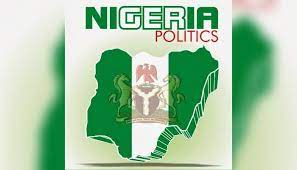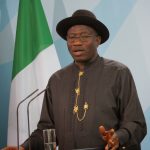“To no one will we sell, to no one will we refuse or delay right or justice.” Magna Carta, 1215
All Nigerian elections are like wars. Correction: they are wars, involving massive deployment of resources, losses of investments, political ambitions, lives and limbs. Victors emerge, but they rarely have time or space to savour victories because the war never really stops.
State resources are used to buy some respite, but they merely remind the host of enemies that incumbency does buy many political privileges, and they fight even more tenaciously for it. The nation regresses because elections do not represent, as they should, opportunities for citizens to make choices over their future. They are made to decide the future of politicians, and in many cases, those decisions are made for them.
The 2015 elections could end the Nigerian democratic experiment, or give it a new lease of life. A lot more than a change of leadership is at stake, and those who are at the heart of the contest know exactly what this means. None of them can pretend that they have not heard of an extra-judicial option in resolving some of the very difficult issues which Nigerians should resolve with votes, emotions and lives. Perhaps a few major players are actively involved in promoting this option because it serves their interests. Difficult as it is to imagine how a year or two (or more) of rule outside the provisions of our constitution will buy relief or advantages for some ambitious politicians or all Nigerians, this is a scenario that is being put forward aggressively as a solution of sorts.
Some Nigerians could be persuaded to show sympathy for this outrageous alternative on grounds that it is founded on fear over the build-up and outcome of the elections. Others may outrightly reject the foundations of that insult to our integrity and sovereignty as a people, but you cannot dismiss the fact that there are genuine grounds for worry in the manner the nation is being dragged around over the 2015 elections. Even hardened observers of the serial impunity of the PDP administration would have been jolted by its reactions to the defection of Rt. Honourable Aminu Tambuwal, the Speaker of the House of Representatives. They should brace themselves for more. The withdrawal of his security details and the audacious justification for it by the Inspector-General of Police is only the beginning. In the coming few weeks, the judiciary will be pot-marked with cases over his defection. The House will be shaken to its foundations as PDP attempts to reclaim lost ground, and APC digs in to protect its latest gains. PDP will justify every desperate measure, insisting that Tambuwal’s defection has rendered him fair game. For a party which has never achieved distinction in its respect for fairness, that means fighting him and his new party by foul and fouler means until it squeezes every ounce of advantage that the defection has given him.
It is reasonable to assume that Tambuwal has anticipated every angle and manner of the assault which will be launched at him. If, as should be the case, he is also thoroughly familiar with the tradition and antics in his old party, he must be preparing for all eventualities: promised loyalties can be bought over; judiciary can be compromised; state institutions can be made to inconvenience him beyond tolerable operational levels. In other words, Tambuwal should expect the PDP book to be thrown at him.
His new party will also feel the heat of his defection. By any standard, they have a right to brag, but they could find him a Trojan horse. Certainly, APC knows that its legislators in the House of Representatives will now be fully and almost entirely engaged in battles to resist the PDP resistance over Tambuwal. This will coincide with periods of party congresses and conventions, campaigns and preparations of next year’s budget and elections. It may draw comfort from the thought that PDP representatives will also be equally engaged in this, but it has to deal with other consequences of his defection. Is he going to join the scramble for the presidential flag? If he decides to contest for the governorship position of Sokoto State, how would that affect ambitions and plans of other interested parties? How does the party harness his assets across the nation, and use him to limit its weaknesses?
Tambuwal represents only one source of turbulence in a darkening firmament. The ward congresses of the PDP have exposed very serious internal problems in the party, the type that are difficult to stop from causing deep and lasting damage between now and the elections. It is obvious that PDP’s successes in guaranteeing that its candidates are elected is coming back to haunt it. Never in its history has the competition for its ticket been so fierce, and its capacity to resolve them so weak. The PDP will limp to the elections with massive deficits which even its fabled resources cannot heal.
The opposition APC should not shout Halleluyah yet. Its management of the competition over its presidential and gubernatorial tickets could erode every advantage it presently enjoys over the PDP. If it ignores massive disputes over congresses from aspirates that will dig in because they smell success, the tragedy of 2011 could be re-enacted on a much bigger scale. The party that will hold the greatest promise to win the elections (if they are conducted in substantial compliance with the laws and the requirements of the electoral process) will be one which is more successful in fixing its internal problems long before the actual polls.
If you are taking a toll of other threats or challenges, you could include the legal challenges to Jonathan’s candidature and its implications; the determined campaign to replace Vice President Namadi Sambo, the possible emergence of General Buhari as APC’s candidate and the rising spectre of violence all through the political and electoral process. You could also add the damaging controversy over the distribution of 30,000 additional polling units, and the real possibility that Jega may be prevented from rolling them out at all. Finally, chalk up an escalating war taking up chunks of Nigeria, and the prospects that terrorists will have the final say in whether millions of Nigerians vote in 2015 or not.
Nigerians followed recent events in Burkina Faso with fascination and admiration. People who had been at the mercy of a vicious dictator for 27 years rose and said, enough. Once upon a time, Nigerians had the type of fire that moved the people of Burkina Faso to get rid of Campaore. Our nation needs to rediscover that fire and utilize it to salvage the nation. The elections of 2015 will mark the beginning of the reversal of our decay, or it will make that reversal impossible. Our politicians and other leaders will be registered by history as heroes in salvaging the nation, or villains who pushed the nation off into deeper danger.
A small note
I plan to contest for the Senate seat in my zone in Kaduna State, in sha Allah. I will have to stop writing until I know the outcome of my efforts to contribute to improving the quality of leadership in our nation. Thank you for reading my contributions.


